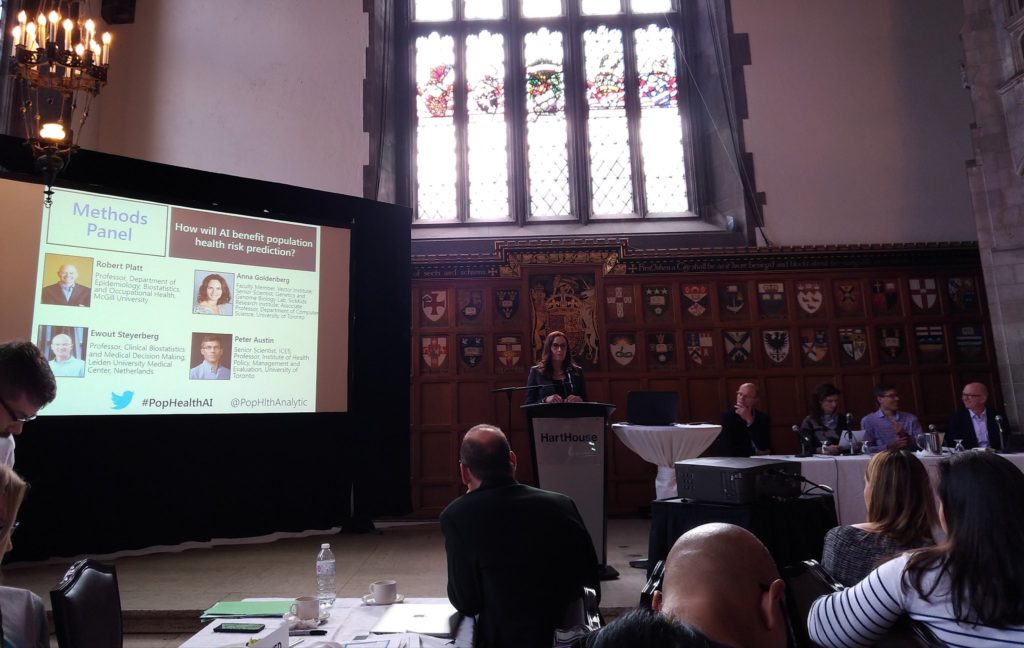The final, of a three-part series of CIHR-funded workshops on collaborating on AI for Public Health
On November 14th, the Population Health Analytics Lab hosted a highly anticipated symposium exploring the role of Artificial Intelligence (AI) in population health risk assessment. Dr. Vivek Goel, Vice President of Research and Innovation at U of T, set the stage with a thoughtful reflection on the history of data analytics in public health. His remarks emphasized the immense growth and advancement that our field has undergone in terms of documenting and predicting illness. Goel highlighted the importance of collaboration engaging different sectors of society when it comes to making progress in population health risk prediction, a theme reiterated by all experts attending the event.
Given the diversity of fields represented, a large part of the discussion focused on reaching consensus on the definition of AI, machine learning, deep learning, and the nuanced perspectives of the same terms held by different fields. The need for a Rosetta Stone to standardize the language across these fields was also expressed.
The symposium set an inspirational tone, with several examples of the various applications of AI methods from computer scientists, statisticians, physicians and population and public health researchers, offering a broad view of the current state of the field. More interactive sessions focused on the value of AI, especially in dealing with big, messy, unstructured data. Panelists importantly also noted that we are still trying to best to figure out how to match the methods-data-question to realize the benefit of these powerful methods. Ensuring the appropriateness of analytic tool or method used for the study design and its ability to answer the study question are the crucial for meaningful impact.
The necessity of collaboration was evident in putting together this exciting event, and for leveraging the expertise of various fields will be equally important in order to push the boundary of our current work. “Data science is inherently a team sport,” as Dr. Claudia Sanmartin of Statistics Canada affirmed eloquently. Going forward, building capacity for AI training within Canadian public health education needs to be prioritized, and the Vector Institute will play an important role in ensuring this.
The experts have gathered to debrief on the exciting ideas shared at the meeting and are to move the needle on incorporating AI methods to benefit population health. The extent of the untapped potential of AI within the population health—be it for risk prediction, training, or decision making—was captured by the buzz of energy at the symposium, as well as on Twitter using the hashtag #PopHealthAI, where you can dive into the conversation if you were unable to attend. A more detailed summary report with the key messages from the symposium will be posted on our website.
Contributed by Jasleen Arneja

